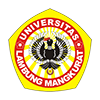Peran Guru Pendidikan Kewarganegaraan dalam Mengembangkan Nilai Moral yang Terkandung di dalam Materi Demokrasi di Kelas VIII Sekolah Menengah Pertama Negeri 1 Sungai Raya Kepulauan Kabupaten Bengkayang
Abstract
Basically the acquisition of moral values is seen as the regeneration of the traits of a person. It can be said that the moral values as continuity of psychological processes such as perception, attitude, and belief in oneself. On the other hand, some are saying that the acquisition of moral values as the social interaction between the individual and his environment. Current perspective is more emphasis on the role of the outside world as a factor that facilitates value system. The role of parents, teachers, community and moral value system that is maintained in an environment in which he lives is an important factors for the possession of the moral values of the individual self. In the view of philosophy, moral values are often associated with the problem of goodness. Something is said to have a moral value if something is useful, true (truth value), beautiful (aesthetic value), good (moral values), religious (religious values), and so forth. Moral values and the ideal is something that is good. Hence the value is regarded as something abstract and can not be touched by the five senses. In connection with this, the Fraenkel (in Hamid Darmadi, 2007: 27) states that this nilaimoral presence in the "people's minds" (human chimera) as well as different other. The opinion similar to the view of this Fraenkel is Rokeah, stating that moral values is something valuable that is considered valuable, fair, good and beautiful as well as to guide or handle themselves.
Keyword: the role of teacher, civics, develop, moral values, democracy matter.
Full Text:
PDFReferences
Ali, Muhammad. (1998) Penelitian kependidikan Prosedur dan Strategi, Bandung: Angkasa.
Arends, Richard I. (2000) Learning To Teach, New York: McGraw Hill Companies.
Arikunto. (2004) Prosedur Penelitian, Suatu Pendekatan Praktik, Jakarta: Rineka Cipta.
Asri Budiningsih, C. (2008) Pembelajaran Moral (Berpijak Pada Karakteristik Siswa dan Budayanya), Jakarta: Rineka Cipta.
Baeley, D.K (1982), Methods of Social Research, New York:A Devision of Mac Millan Publishing Co. Inc.
Bungin, B. (2006). Metode Penelitian Kualitatif (Aktualisasi Metodologi ke Arah Ragam Varian Kontemporer. Jakarta: PT. RajaGrafindo Persada
Chariri, A. (2009). Landasan Filsafat dan Metode Penelitian Kualitatif. Paper disajikan pada Workshop Metodologi Penelitian Kuantitatif dan Kualitatif, Laboratorium Pengembangan Akuntansi (LPA), Fakultas Ekonomi Universitas Diponegoro Semarang, 31 Juli-1 Agustus 2009.
Colin, Rose. (2000) Cara Belajar Abad 21, Jakarta: Nuansa Cendikiawan.
Darmadi Hamid. (2007) Dasar Konsep Pendidikan Moral, Bandung: Alfabeta.
Daryanto (2009) Panduan Proses Pembelajaran Kreatif dan Inovatif, Jakarta: Publisher.
Forster, Margaret, dan Masters G (1996) Portfolios Assessment Resource Kit, Camberwell, Melborne: The Australian Council for Educational Research Ltd.
Gagne, R.M. (1995) Some New Views of Learning and Instructional, Phi Delta Kappan.
Grondlund, E. Norman. (1994) Constructing Achievement Tests. London: Prentice Hall Inc.
Jihad, Asep. Dan Haris, Abdul. (2009) Evaluasi Pembelajaran, Yogyakarta: Multi Press.
Maleong, L. J. (2002). Metode Penelitian Kualitatif. Bandung: PT. Remaja Rosdakarya
Mulyana, Rohmat. (2004) Mengartikulasi Pendidikan Nilai, Bandung: Alfabeta.
Nawawi, H. (2003). Metodologi Penelitian Bidang Sosial. Yogyakarta: Gajah Mada University Press.
Padmawati, R.S. (2009). Metode dan Desain Penelitian Kualitatif. Disampaikan pada 6 Mei 2010. Fakultas Kedokteran, Universitas Gadjah Mada
Riyanto, Yatim. ( 2001 ), Metodelogi Penelitian Pendidikan, Surabaya : SIC.
Satori, D dan Komariah, A. (2011). Metode Penelitian Kualitatif. Bandung: PT. Alfabeta
Sukardi.(2011). Metodologi Penelitian Pendidikan (Kompetensi Dan Prakteknya). Jakarta: PT. Bumi Aksara
Sugiyono. (2010). Metode Penelitian Kuantitatif, Kualitatif dan R&D. Bandung: PT. Alfabeta
Sumanto (1990), Metodelogi Penenlitian Sosial dan Pendidikan,Yogyakarta : Andi Offset.
Surachmad, Winarno. (2000) Pengantar Penelitian Ilmiah Dasar Metode dan Teknik, Bandung: Tarsito.
Syah, Muhibbin. (2009) Psikologi Belajar, Jakarta: PT. Raga Grafindo Persada.
Tim Dosen STKIP PGRI Pontianak (2012), Pedoman Penyusunan Skripsi Bagi Mahasiswa, Pontianak: STKIP.
Zuldafrial. (2011). Penelitian Kualitatif. Pontianak: STAIN Pontianak Press.
DOI: http://dx.doi.org/10.20527/kewarganegaraan.v7i1.3552
Article Metrics
Abstract view : 292 timesPDF - 324 times
Refbacks
- There are currently no refbacks.
Copyright (c) 2017 Pendidikan Kewarganegaraan
KERJASAMA DENGAN


Diindeks oleh:
Jurnal Pendidikan Kewarganegaraan oleh Lembaga Pengembangan dan Penjaminan Mutu Pendidikan ULM dilisensikan dengan Lisensi Internasional Creative Commons Attribution-ShareAlike 4.0 .





